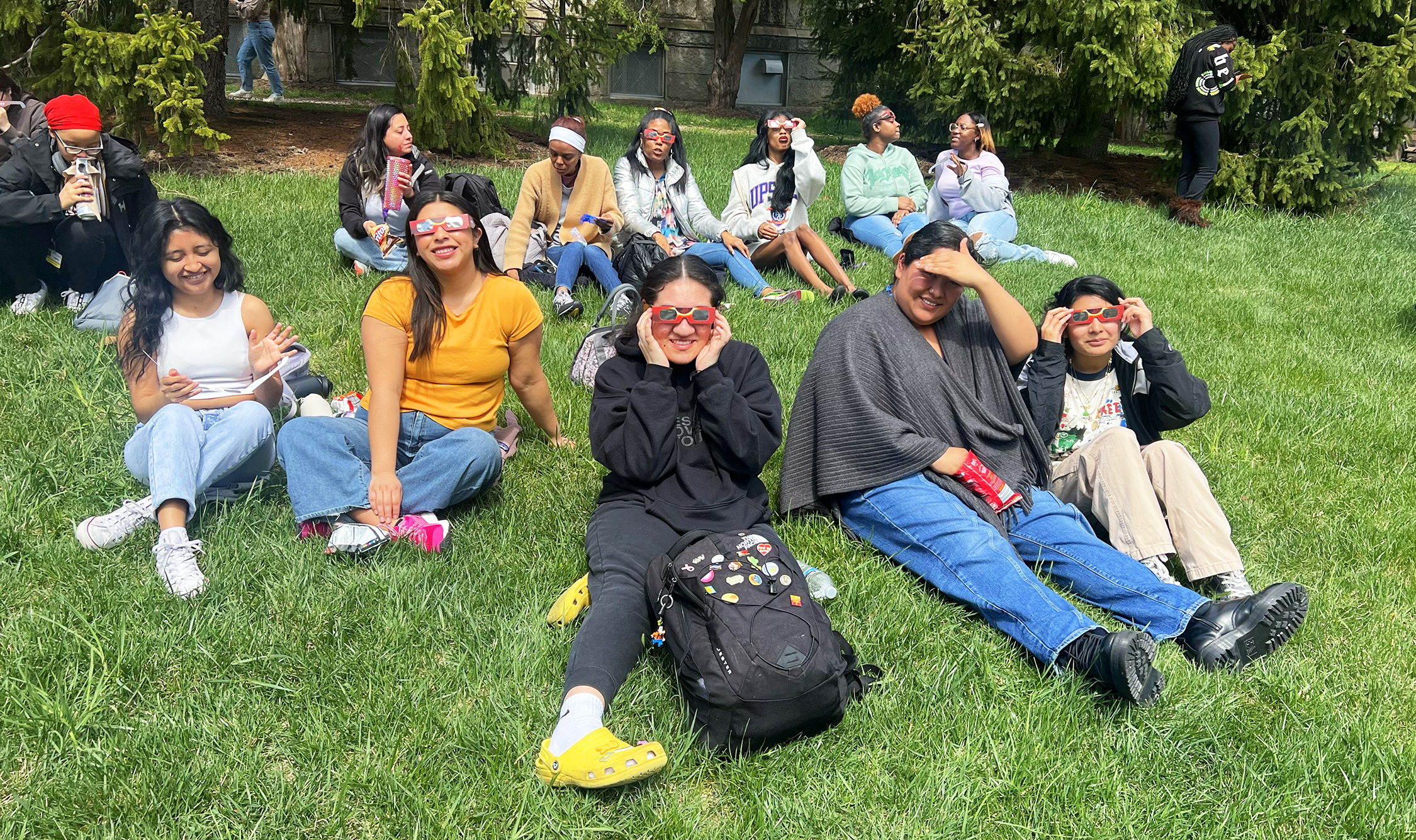
By Ingry Reyes
Trinity Times Correspondent
Though social media was rife with conspiracy theories of doom about the April 8 solar eclipse, students from Trinity Washington University gathered on campus for the celestial event and experienced a moment of solidarity as the moon momentarily obscured the sun.
For seniors, it was a poignant way to conclude their time at the university ahead of their upcoming May graduation, as they experienced in unity with their college community what is believed to have been the United States’ most viewed celestial event ever.
Washington didn’t experience the total solar eclipse that spread from Texas to Maine, but Trinity students were still treated to the sight of the moon blocking 89% of the sun’s light for a few minutes, which dimmed the afternoon sky and exposed a fiery corona.
Trinity junior Jewel Joyner hosted the Solar Eclipse Viewing Party as part of her work as a NASA Space Grant Ambassador, which began in the Payden Academic Center at 2 p.m.
While many enjoyed the spread of snacks laid out in Payden, Joyner passed out special eclipse glasses to students with the ISO 12312-2 safety standard to protect their eyes from the harmful rays during the partial eclipse.
But there weren’t enough to go around, so several of the glasses were torn in half so most of the gazers could watch with one eye closed.
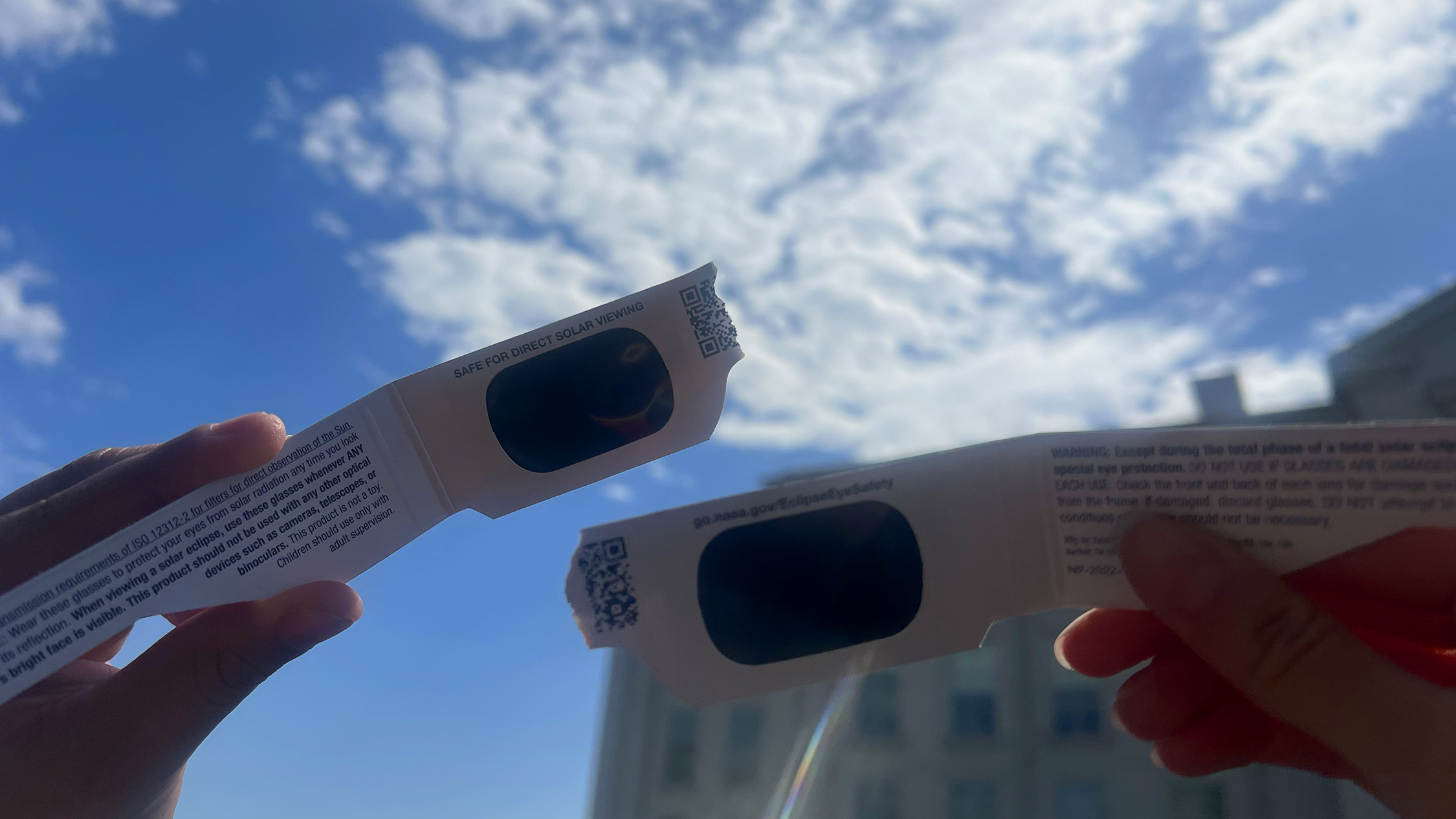
There was a sense of anxiety among some who worried about the dangers of exposing their eyes to the eclipse and the predicted end of the world they read on social media, but joyous cheers erupted when students began making their way to the main lawn to witness the beginning of the magical moment, which was scheduled to peak at 3:20 p.m.
Standing closely together outside in harmonious excitement, the Trinity students buzzed about the approaching eclipse as a “once-in-a-lifetime event,” creating a hopeful and united atmosphere.
As students observed through their glasses, professors gathered on the side of Payden looking up at the sun through telescopes.
There was a tremendous amount of “good energy” as the Trinity community eagerly watched the sun’s progression every second, afraid to miss a single stage of the moon covering the sun.
“The key to capturing great photos of the eclipse is to stay still and savor the moment,” said Rosa Lopez, a Biochemistry senior who expects to graduate in May.
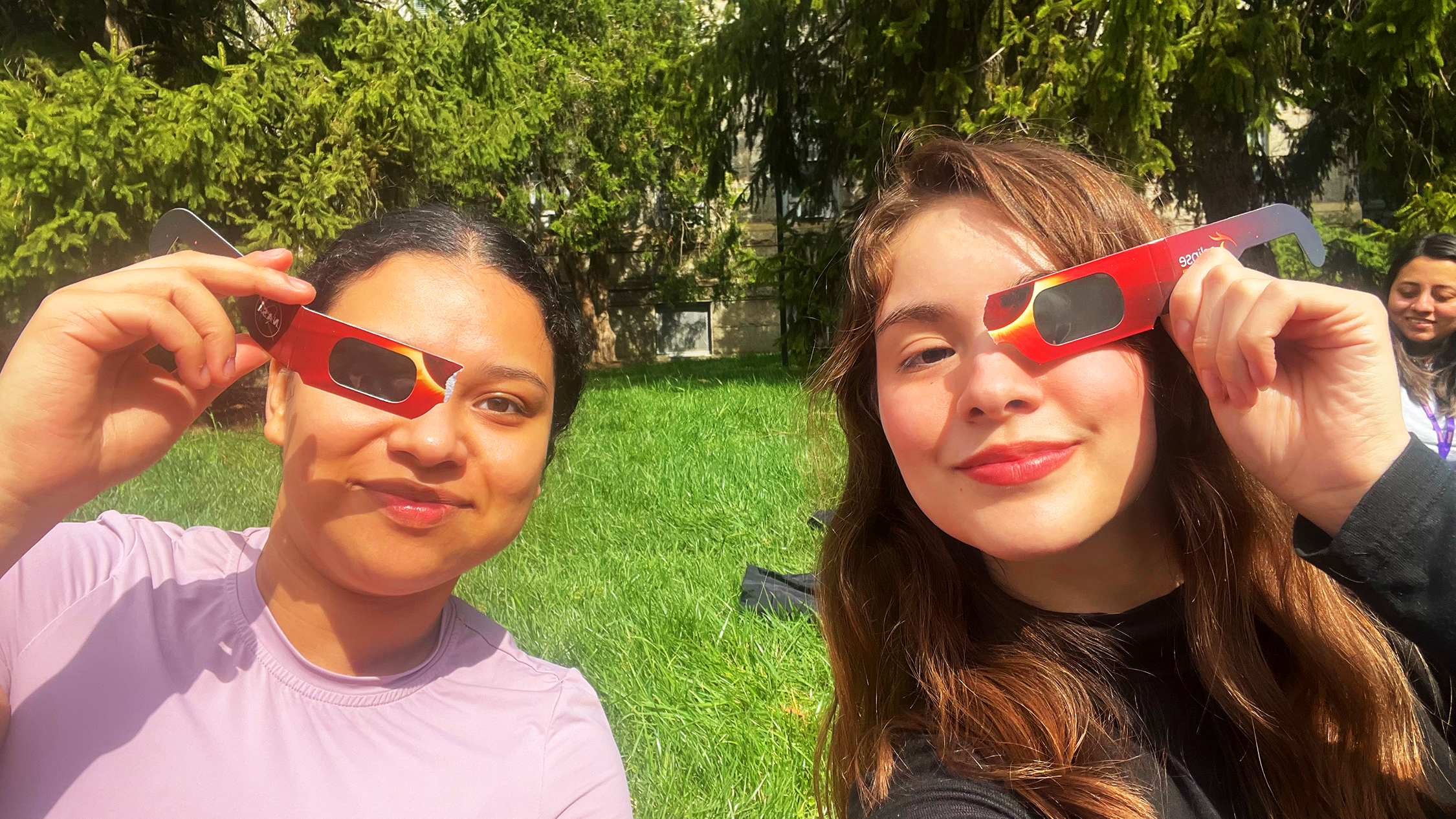
Earth experiences a solar eclipse about every 18 months, but it occurs in different paths of the planet each time and the U.S. will likely not have another total eclipse for another few decades.
As the peak of the eclipse occurred around 3:20 p.m., the sky dimmed and the temperatures dropped about 6 degrees, causing a few gasps and jubilant sounds from the students gathered outside.
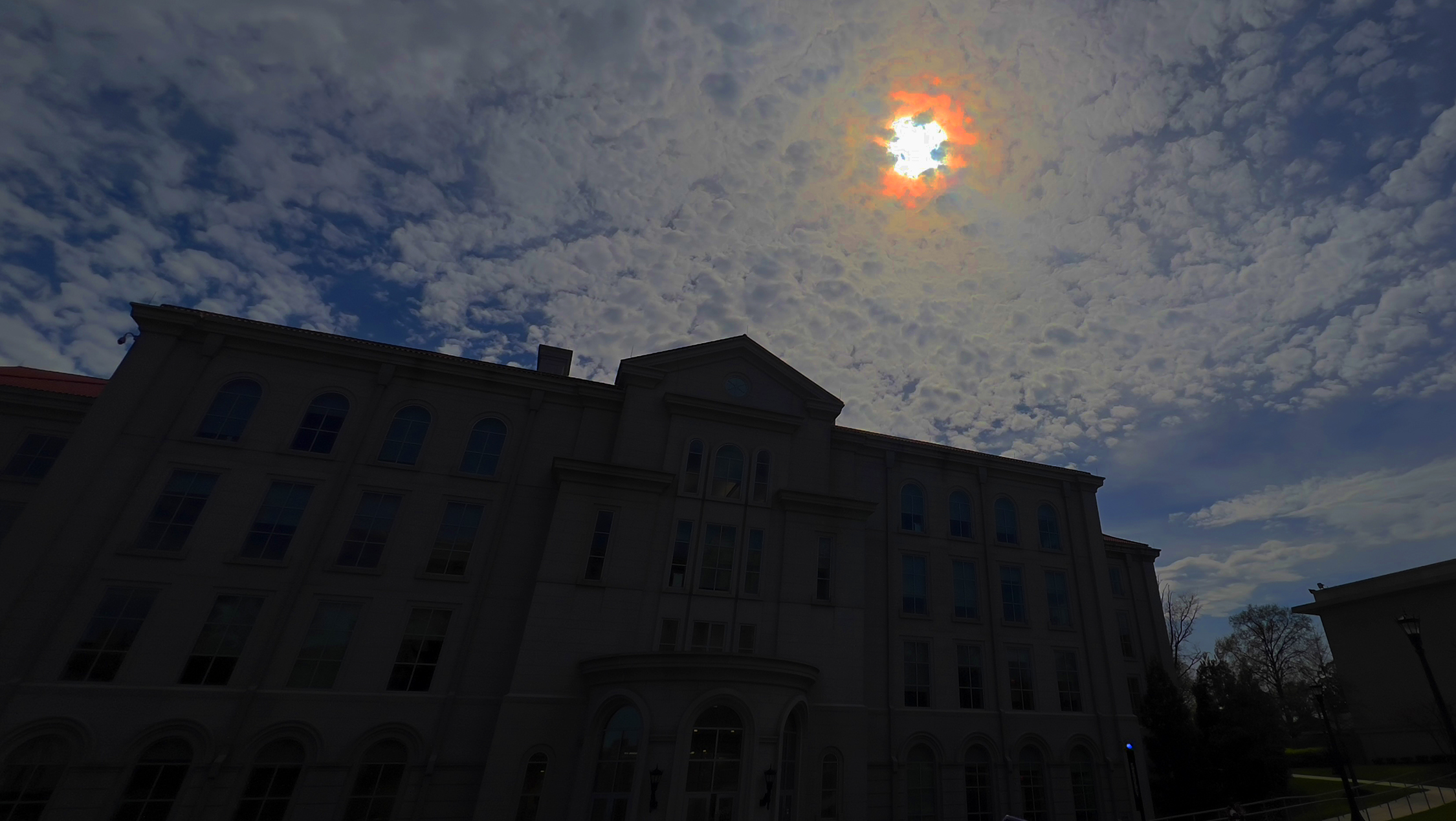
Trinity senior Perla Bello Hernandez noted that this year’s solar eclipse was longer than the one she viewed in 2017, making the 2024 event that much more satisfying to her.
The students who were unable to secure the protective eyewear watched the solar eclipse via livestream inside Payden, trying hard to conceal their disappointment of not witnessing the magic moment outside.
The solar eclipse did not unfold as some of the students had anticipated, since the path through Washington was only an 89% partial eclipse, meaning the sky didn’t plunge into complete darkness when the moon covered the sun.
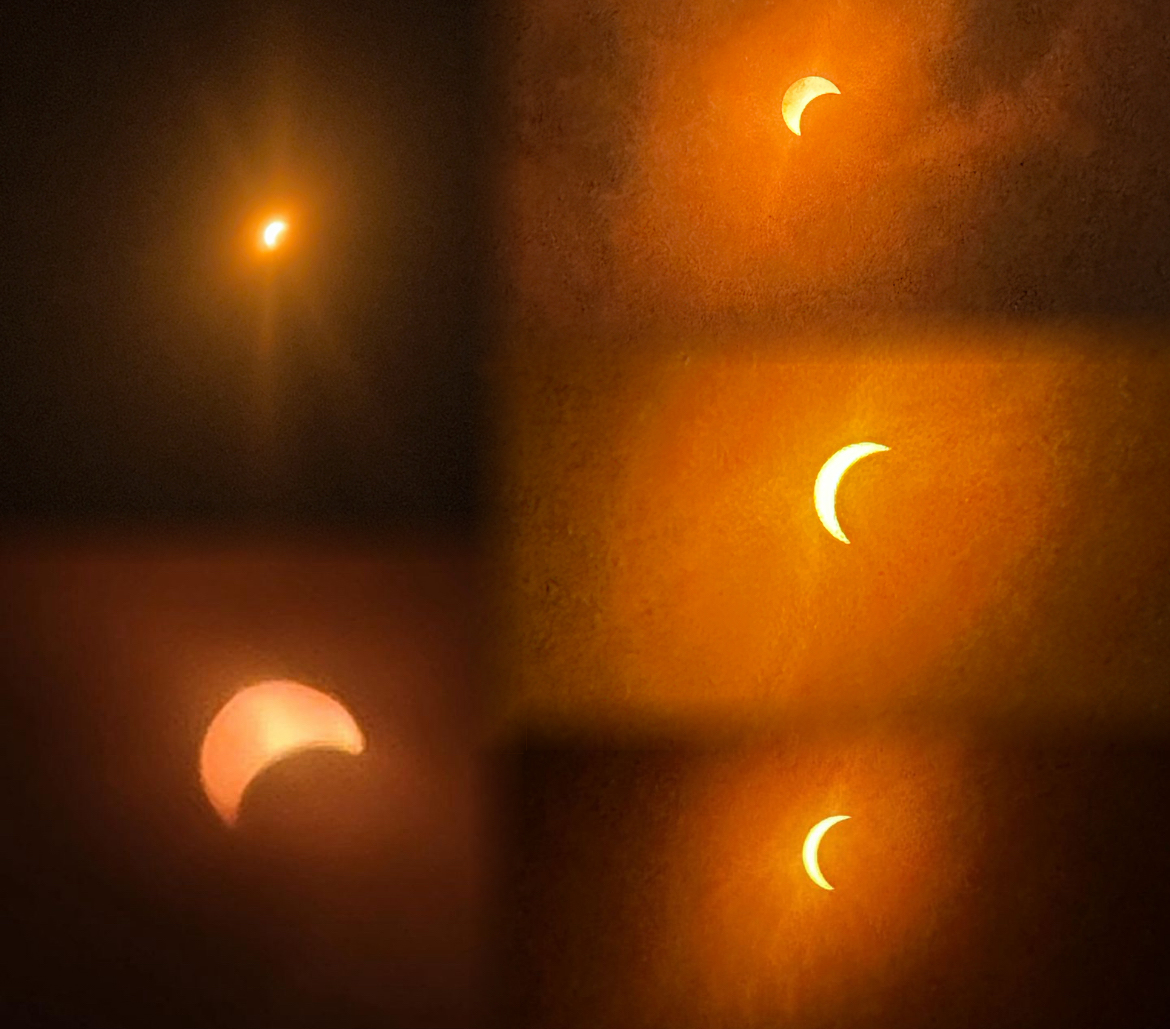
Many students had also viewed the celestial event with a bit of fear because they had been viewing information on social media like TikTok and Instagram that insinuated the eclipse was a sign that the world was ending, said Josheline Bautista, a Trinity senior majoring in Business Administration.
Of course, those students who might have been a bit timid about the eclipse, were relieved that the world did not end nor was North America in a post-apocalyptic state, Bautista told Trinity Times with an amused look on her face. “They were excited to witness such a monumental moment.”
By Tuesday only echoes of the solar eclipse resonated across the campus, though students could be seen sharing their photos, experiences, and memories from the previous day’s event, many noting they looked forward to future eclipses.
Some students shared that they planned to hold onto their eclipse safety glasses for the next one, eager to seek out a location that offers a clearer view of this remarkable phenomenon.